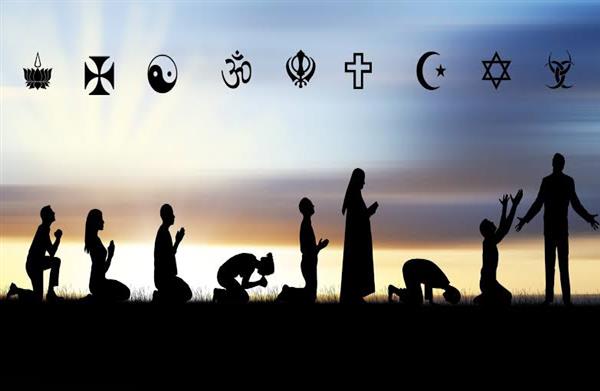Religion has played a profound and enduring role in shaping Indian heritage. The religious diversity of India has contributed to the development of a rich tapestry of beliefs, rituals, practices, art forms, and cultural expressions that have permeated every aspect of Indian society. The influence of religion can be observed in various dimensions of Indian heritage, including spirituality, philosophy, architecture, art, literature, music, and social customs.

Spirituality and Philosophy: Indian heritage has been deeply influenced by the spiritual and philosophical traditions that emerged within its religious frameworks. Hinduism, Buddhism, Jainism, and Sikhism, among others, have flourished in India, each with its unique teachings, practices, and philosophies. These religions have explored fundamental questions about the nature of existence, the human condition, ethics, and the pursuit of spiritual enlightenment. They have provided spiritual guidance, moral values, and frameworks for living a virtuous life, shaping the beliefs and value systems of countless individuals over centuries.
Architecture and Art: Religion has had a significant impact on the architectural marvels and artistic expressions of India. Temples, mosques, gurdwaras, and other religious structures exhibit distinctive architectural styles influenced by religious beliefs and rituals. For instance, Hindu temples showcase intricate carvings, sculptures, and symbolic representations of deities. Islamic architecture in India is characterized by ornate domes, arches, and intricate geometric patterns. Religious art, such as the exquisite frescoes of Ajanta and Ellora caves or the intricately painted Pattachitra scrolls, reflects the narratives, mythology, and devotional themes associated with different religions.
Literature and Philosophy: Religion has been a wellspring of inspiration for Indian literature and philosophy. The ancient scriptures, such as the Vedas, Upanishads, and Puranas of Hinduism, the Tripitaka of Buddhism, and the Guru Granth Sahib of Sikhism, have provided profound insights into spiritual wisdom, human behavior, and the nature of reality. The works of philosophers and scholars, like Adi Shankara, Ramanuja, and Swami Vivekananda, have shaped philosophical discourse and influenced intellectual thought, making significant contributions to Indian philosophy and its global impact.
Music and Dance: Religion has also had a transformative influence on Indian music and dance. Bhajans, qawwalis, kirtans, and devotional songs are integral to religious practices and celebrations. Classical music forms, such as Hindustani and Carnatic music, have deep roots in spiritual traditions, with ragas and compositions dedicated to deities. Similarly, classical dance forms like Bharatanatyam, Odissi, Kathak, and Kathakali often depict mythological stories, religious narratives, and devotional themes, expressing reverence and devotion through the medium of movement and expression.
Social Customs and Festivals: Religious beliefs and practices have shaped social customs, traditions, and rituals in Indian society. From birth to death, religious ceremonies and rites mark various milestones in an individual's life. Festivals, such as Diwali, Eid, Christmas, Navaratri, and Baisakhi, are celebrated with great enthusiasm, reflecting religious observances, mythological events, and historical significance. These festivals bring communities together, foster a sense of shared identity, and strengthen social bonds.